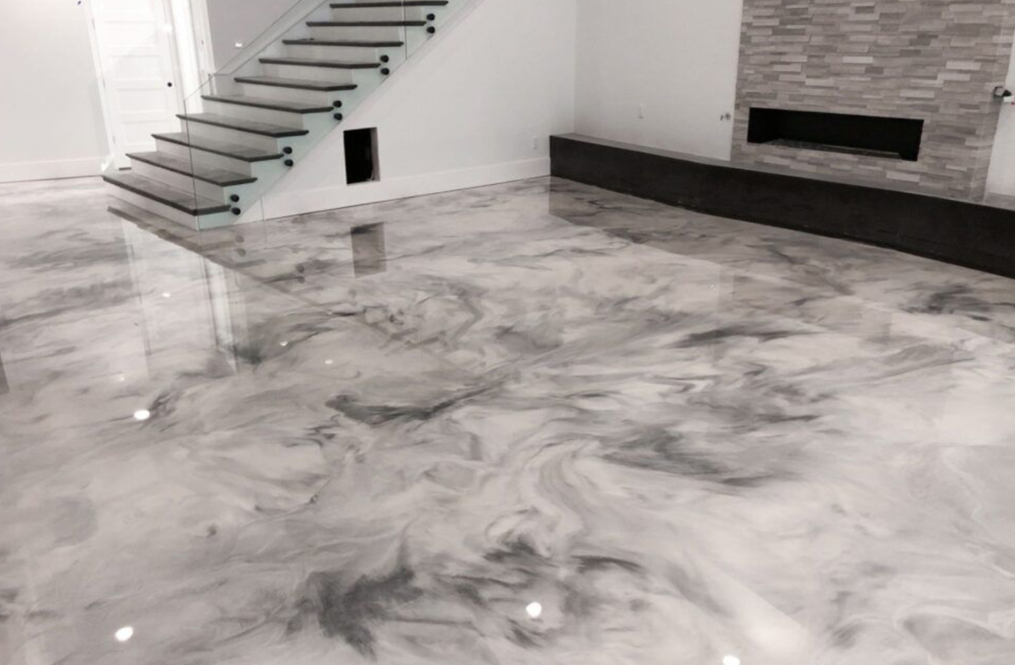Having a healthy, clean, and safe work environment is critical in industrial settings. To make the best choice during the construction or restoration of said facility, the manufacturer must be familiar with the distinctions between Epoxy Flooring and tile flooring. Understanding which sort of flooring is best can help you select the correct and solid flooring. In this article, we’ll examine the benefits and downsides of epoxy flooring over tile flooring.

Choosing between epoxy and tile flooring: Which is better?
As with epoxy flooring, you may create different types of flake shades to design your color palette. Because of the tiny flake size, the epoxy can simulate the appearance of solid stone.
If you’re looking for a floor that’s both durable and attractive, tile flooring is the way to go. Garages benefit from epoxy flooring since they are smooth and glossy.
Epoxy also has the advantage of being able to be customized to appear like stone, like granite or quartzite. If you’re looking for a method to upgrade your flooring for less than the cost of tiling, this is the way to go.
Benefits of Epoxy Flooring
There are multiple advantages to using epoxy floor coatings above other types of conventional coatings put to concrete:
- Has the natural tendency to create a very reflective surface that can dramatically improve the lighting of interior spaces.
- Using no particular equipment and machinery, the installation is quick and straightforward.
- Useful for creating a long-lasting seamless surface
- Can also be used in conjunction with paints to cover over chipping and fractures.
- It doesn’t absorb water or oils.
- Use various patterns to make visible driveways or indicate walking zones.
- There’s no need for substantial repairs.
Disadvantages of Epoxy Flooring
Epoxy flooring has several drawbacks in addition to its advantages. The following are some of the drawbacks of epoxy flooring:
- The solvent value is higher as it is a chemical substance. As a result of this, both humans and items are harmed. It’s important to note that although you choose a high-quality epoxy coating, it will still be chemical.
- It is not capable to withstand high temperatures and high pressures.
- It requires many days of curing time depending on the kind and intensity of the installation.
- In addition, since epoxy is non-porous, it can get quite slippery when it’s wet.
- In the process of applying epoxy, wet epoxy emits a strong smell.
Epoxy Flooring or Tile Flooring?
Nobody has the time to maintain their flooring, whether it’s a residential or commercial garage. Simple sweeping and mopping are all that’s needed to maintain epoxy floors nice and neat.
In tile installation, it is important to keep an eye on the grout to make sure there are no cracks. If you have tile, you’ll have to re-grout it now and then or examine it for signs of deterioration.
Since epoxy flooring is just a continuous surface, there is just no grout that has to be retained. If you throw a hard item on top of it, it won’t break because the cleaning procedure is easy. If you unintentionally drop a heavy car component or tool on tile, it might fracture or break.
Upgrade your Floors with Epoxy
Epoxy flooring is a stylish and lifelong option for your home or business garage, either for your household or your business garage. There is no bother and no significant upkeep required with this unusual flooring in your garage.
Epoxy is a durable material that won’t discolor or fracture over time. If you’re looking for a new flooring option, epoxy is the clear victor over tile.



